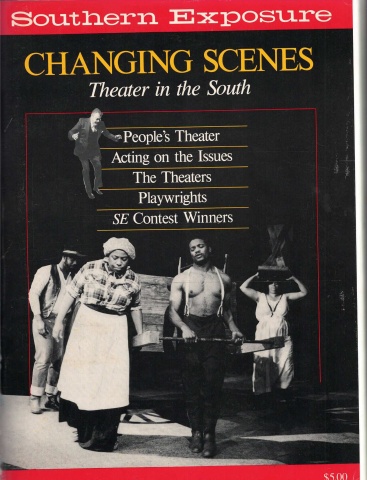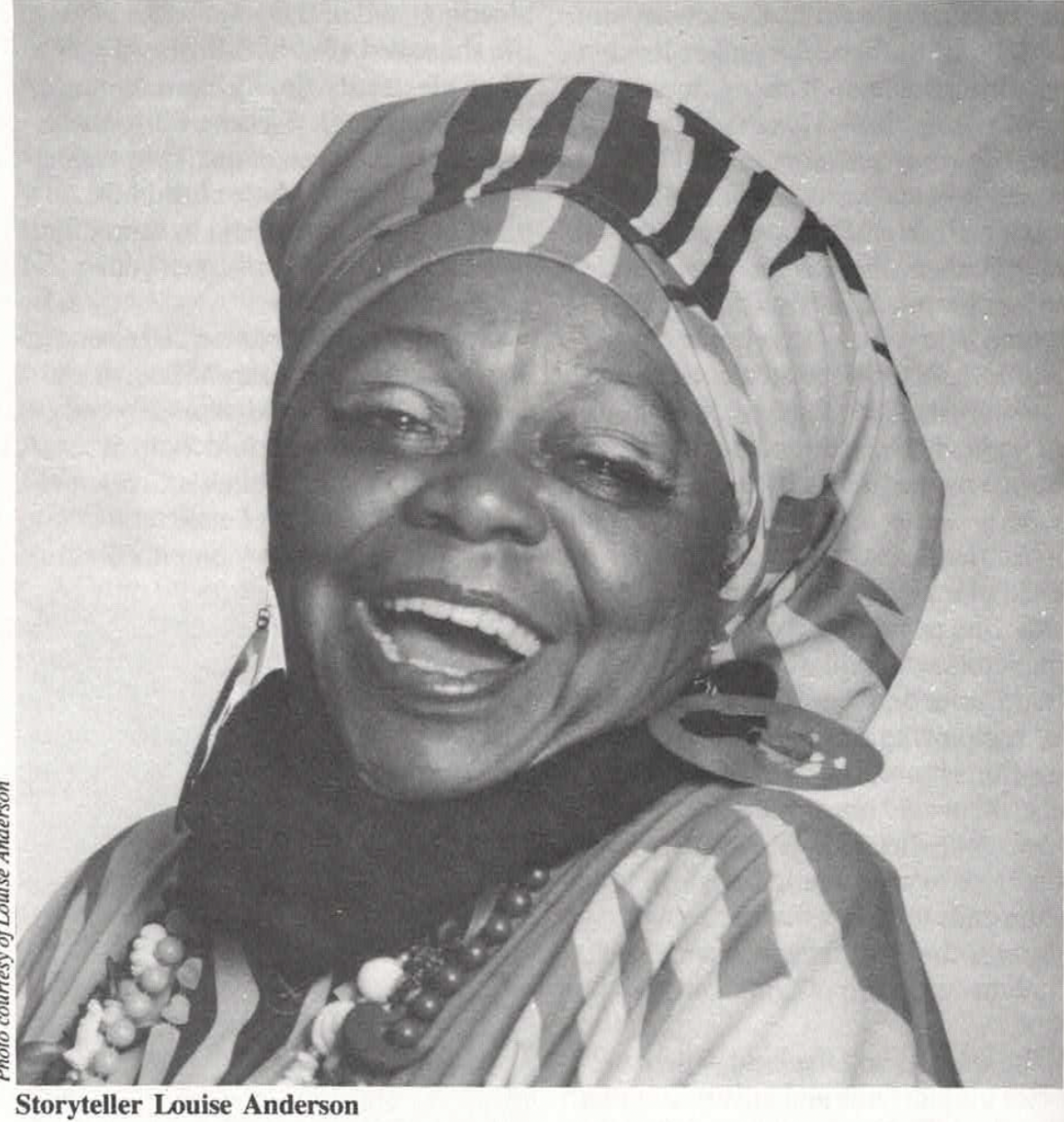
This article originally appeared in Southern Exposure Vol. 14 No. 3/4, "Changing Scenes: Theater in the South." Find more from that issue here.
Louise Anderson admits to being “almost 65” years old, and those who have heard her, say she can “weave a tale that will drop your jaw.” Born in Georgia, she has lived most of her life in North Carolina where she learned the stories of the people and of her family. She is currently visiting artist at Wilson County Technical Institute in Wilson, North Carolina.
Storytelling is the joy of my life. I tell true stories, I tell ghost stories. I meet people and they tell me stories, the things of their lives.
I remember stories from my childhood. Now, all of these are old, old stories. The animal stories were from the islands, the Anansi stories. Anansi was a spiderman — sometimes a spider, sometimes a man. We brought these stories over, and used some things native to this country, adapted them.
The Br’er Rabbit stories show you that you don’t have to be strong to win out, all you have to do is use your wits. The Uncle Remus stories too. But I hate Uncle Remus. Joel Chandler Harris just took those stories and made them “racial.” And all these people say, “Oh, Joel Chandler Harris was such a wonderful writer.” Well what did he write other than he took our stories and made them “racial.” Joel Chandler Harris was a bigot.
Because why couldn’t Uncle Remus have told those stories to his own grandchildren?
There are people around Wilson who remember the last time Halley’s Comet was here, and they tell stories about that. My mother was born in 1900 and she saw it. See, if you have stories from your parents you can take in whole generations because they’ll tell you about their parents and grandparents. But if you don’t know someone’s story you don’t feel close to them.
People today don’t have this feeling of family or community. That’s how you keep families together, you tell the family stories.
Families used to live together and share the chores. Grandparents would tell the children stories to pass the time. It was entertainment, but it was a healing time, also. People would sit out and talk about the things that hurt them, things that concerned them. At that time people knew how to heal each other by talking to each other. This is what the psychiatrist does today.
I knew a girl who told me about her grandmother. It was a terrible story about how her grandmother had been treated as a slave. The girl said she hated to think about it, but I told her that is her story, that she needed to take it, bring it back and hold on to it.
Tags
Caroline Senter
Caroline Senter is a recent graduate of Antioch College in Yellow Springs, Ohio, who was an intern at Southern Exposure during the spring of 1986. (1986)

